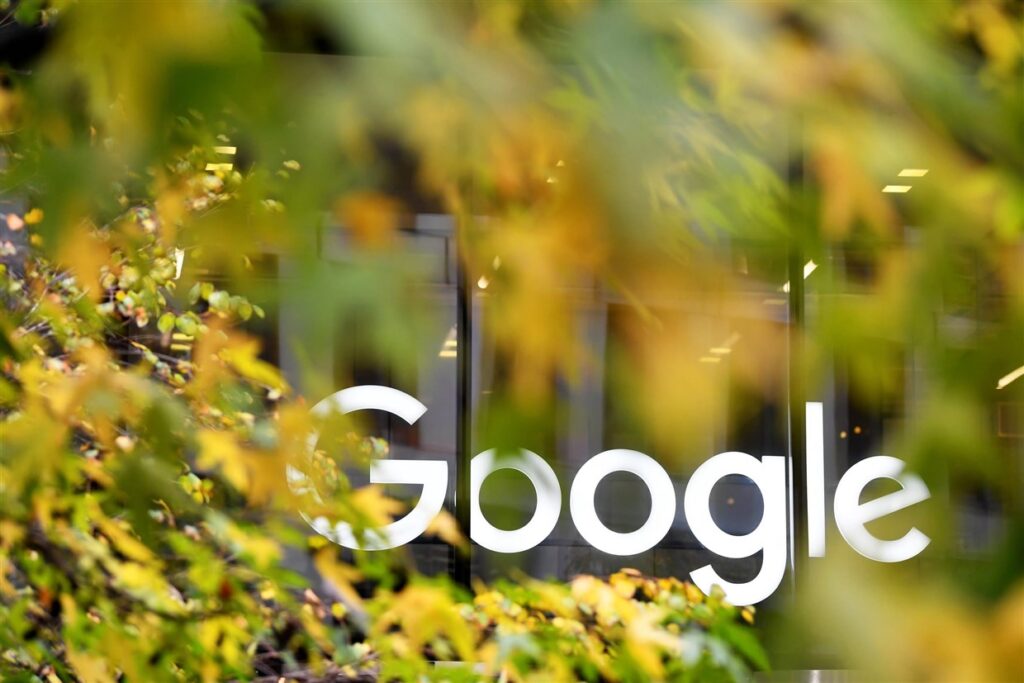

Google now faces its third government antitrust lawsuit in less than two months, this time from a bipartisan coalition of state attorneys general.
A group of 38 states and territories took part in the lawsuit, which claims Google illegally maintained a monopoly in general search and search advertising through anticompetitive conduct and contracts. Members of the executive committee leading the states include Arizona, Colorado, Iowa, Nebraska, New York, North Carolina, Tennessee and Utah.
Shares of Google parent company Alphabet were down less than 1% Thursday afternoon after the announcement.
Colorado Attorney General Phil Weiser said at a press conference Thursday the group would file a motion to consolidate the case with the Justice Department’s recent lawsuit against Google.
Similar to the Justice Department’s lawsuit, filed with 11 Republican state AGs in October, the new complaint tackles Google’s alleged monopoly in online search. But the new suit focuses on some additional mechanisms that the AGs claim Google used to illegally maintain its monopoly power.
The DOJ lawsuit alleges Google used exclusionary contracts to prevent competitors from gaining access to key distribution channels and ensure its continued monopoly in online search.
Weiser said at the press conference the new suit goes beyond the DOJ’s. The lawsuit lays out three ways Google allegedly entrenched its monopoly power:
- First, by engaging in “artificially-restrictive contracts” to give it “de facto exclusivity” in most distribution channels for search. This is the part of the lawsuit that most clearly mirrors the DOJ’s.
- Second, by denying advertisers the ability to interoperate between its own ad tools and competitors’ for general search ads, disadvantaging the advertisers.
- Third, by using “discriminatory conduct on its search results page” to limit the ability of vertical search providers, such as Yelp and Tripadvisor, to reach consumers.
Weiser said the new state lawsuit looks at how Google allegedly used exclusionary contracts to tie up emerging distribution channels such as smart speakers, in addition to the more longstanding ones, that consumers increasingly use to access search engines.
In the part of the complaint that most closely follows the DOJ case, the states allege that Google’s contracts with device makers and distributors to be the default search provider have helped solidify its monopoly. Google’s contracts have secured its search engine default placement on 80% of web browsers, according to the complaint, which says that has contributed to “artificial barriers” preventing competitors from reaching consumers. Google has a longstanding agreement with Apple, for example, to be the default search provider on its products.
Google also offers revenue share agreements with other mobile manufacturers as well as carriers such as AT&T, Verizon and T-Mobile, the complaint says. In exchange, it alleges, those partners must agree to preload Google’s mobile apps and make them the default search engine on the devices. Those agreements often prevent partners from pre-installing other general search engines or browsers such as Microsoft’s Bing or DuckDuckGo, according to the complaint.
Like the DOJ’s lawsuit against Google, the new state-led suit compares the company to Microsoft at the time of its landmark antitrust fight.
“As the gateway to the internet, Google has systematically degraded the ability of other companies to access consumers,” the complaint says. “In doing so, just as Microsoft improperly maintained its monopoly through conduct directed at Netscape, Google has improperly maintained and extended its search-related monopolies through exclusionary conduct that has harmed consumers, advertisers, and the competitive process itself.”
The states are asking the court for a variety of remedies, including ordering Google to stop engaging in the alleged anticompetitive practices and even potentially breaking up the company.
Google’s Director of Economic Policy Adam Cohen responded to the lawsuit in a blog post Thursday. Cohen wrote that the complaint “suggests we shouldn’t have worked to make Search better and that we should, in fact, be less useful to you.”
He argues that doing so “would harm the quality of your search results. And it would come at the expense of businesses like retailers, restaurants, repair shops, airlines and hotels whose listings in Google help them get discovered, and connect directly with customers. They would have a harder time reaching new customers and competing against big commerce and travel platforms and other aggregators and middlemen.”
Cohen added that the claims in Thursday’s complaint “have been closely examined and rejected by regulators and courts around the world, including the U.S. Federal Trade Commission, competition authorities in Brazil, Canada and Taiwan, and courts in the United Kingdom and Germany, who all agreed that our changes are designed to improve your search results. It’s also well established that the most important driver for our search results is the specific query—not your personal data.”
A group of 10 Republican AGs sued Google on Wednesday, targeting its advertising technology business and an allegedly illegal deal with Facebook.
Following Thursday’s filing, Wall Street Journal owner News Corp, which has long criticized Google’s practices, said in a statement it was “stunned” by the evidence alleged in the complaint.
“To be clear, the core charge is that publishers all over the country have been routinely ripped off, which is bad news for freedom of the press, journalism and an informed society,” News Corp wrote.
Luther Lowe, senior vice president of public policy at Yelp and one of Google’s most enduring critics over its search practices, called Thursday’s lawsuit “arguably more significant than previous lawsuits in that it strikes at the foundation of Google’s dominance: its search results.”
The new lawsuit against Google comes about a week after many of the same states sued Facebook in a coalition of 48 attorneys general led by New York’s Letitia James. The states, and a separate complaint by the Federal Trade Commission, claimed Facebook had unlawfully maintained monopoly power in personal social networking services in part by acquiring potential competitors before they grew into larger threats.